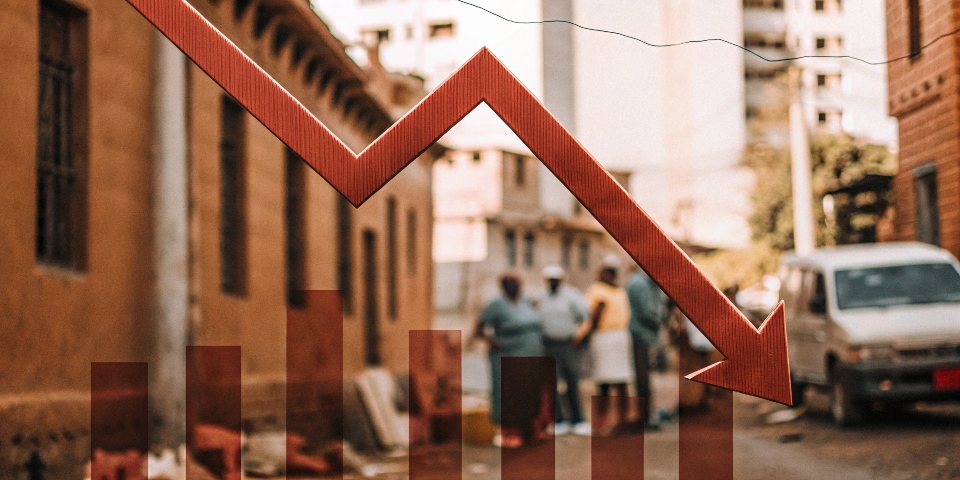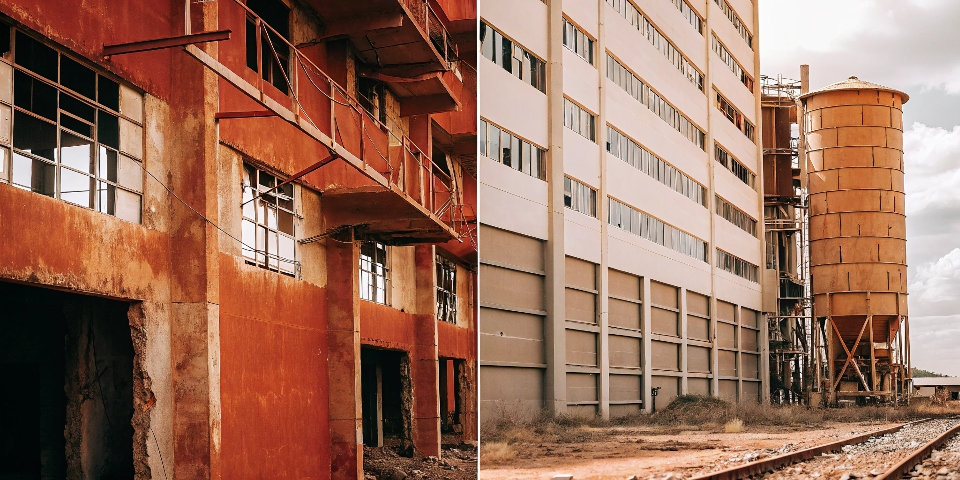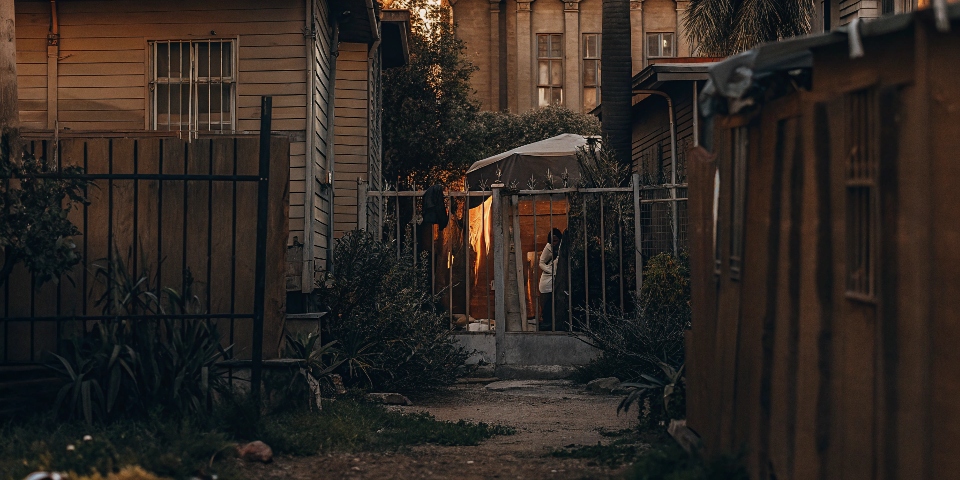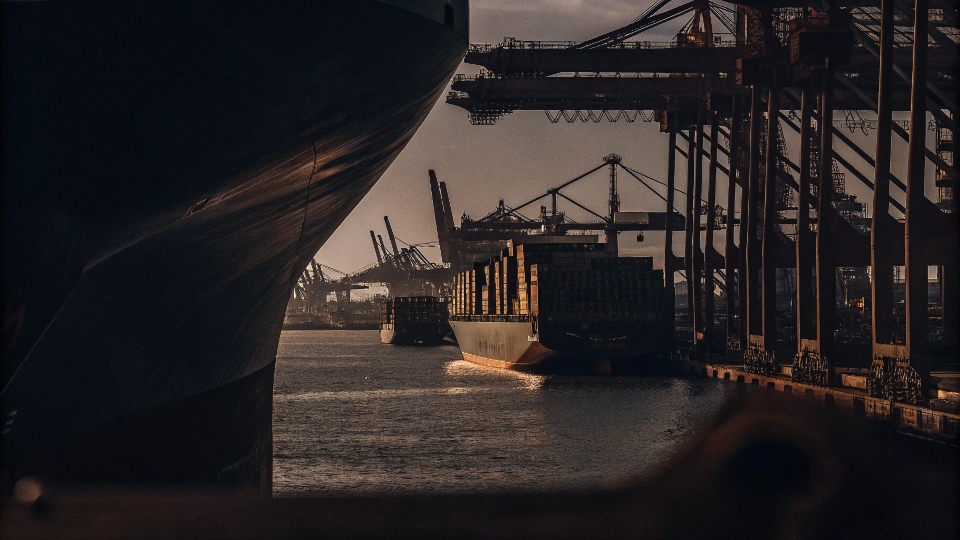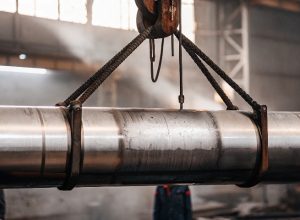Are you watching a country with so much promise struggle? South Africa’s story is a tough one. It shows how quickly a strong economy can weaken without the right support.
South Africa’s rapid decline is due to a mix of serious problems. Decaying infrastructure, political instability, deep-rooted inequality, and widespread corruption have scared away investors and crippled key industries, causing the economy to shrink.
This situation didn’t happen overnight. It is a result of many connected issues that have built up over time. As someone who works with partners all over the world, I’ve seen how these problems directly impact business and trade. To really understand the situation, we need to look at the key questions people are asking. Let’s break down each problem to see the full picture.
How did South Africa become so poor?
Seeing a nation’s potential wasted is frustrating. South Africa struggles with basics like power and transport, while unclear government rules make it hard for businesses to plan ahead.
The country became poorer because its essential infrastructure, like power grids and ports, is falling apart. This cripples manufacturing and exports. At the same time, uncertain government policies have made investors too nervous to put money into the economy, stopping growth in its tracks.
When people ask me about doing business in different regions, the conversation always turns to stability. A business needs reliable services and clear rules to succeed. My experience with South African clients highlights exactly what happens when these things are missing. The decay is not just visible in the streets; it is felt in every international transaction and business plan. The foundation that once supported a strong economy has been worn down by neglect and bad decisions, making it incredibly difficult for the country to get back on its feet.
The Crumbling Foundation
The most basic services required to run a business are no longer reliable. Daily life and commerce are disrupted by "load-shedding1," which are planned power cuts that can last for hours. Imagine trying to run a manufacturing plant when you don’t know if you’ll have electricity. Our partners there tell us it’s a constant battle. Beyond power, the logistics network is broken. I’ve personally dealt with this. A shipment of our titanium products was delayed for weeks at a port because of inefficiency and equipment failures. These delays cost money and, more importantly, damage trust with customers who rely on timely delivery.
Unpredictable Policies
Businesses need to know the rules of the game. In South Africa, those rules can feel like they are always changing. This policy uncertainty makes companies hesitant to make long-term investments. Why build a new factory or hire more people if the government might suddenly change trade laws or ownership requirements? This fear is real. It leads to capital flight, where money that could be used to build the local economy is sent elsewhere.
| Business Need | South African Reality | Impact |
|---|---|---|
| Stable Power Supply | Frequent, long power cuts (load-shedding) | Production stops, costs increase |
| Efficient Logistics | Severe port delays and failing rail lines | Shipments are late, new orders lost |
| Clear Regulations | Policy uncertainty and frequent changes | Investors pull out, no long-term growth |
Why are the rich leaving South Africa?
Protecting your family and your assets is a universal goal. But in South Africa, even the wealthy feel unsafe, and they are worried their investments are not secure.
The rich are leaving South Africa mainly for two reasons: personal safety and financial security. Rising crime rates make them fear for their families, while concerns about political instability and weak asset protection are pushing them to move their money and businesses to safer countries.
This isn’t just about a few people moving. It’s a trend that I’ve heard about directly from contacts in the region. We work with distributors who serve high-end industries, and they tell me that many of their top clients are making exit plans. This is what experts call "capital flight2" and "brain drain3." The country is not just losing money; it’s losing skilled professionals, entrepreneurs, and business leaders. This loss creates a vacuum that is very hard to fill, making economic recovery even more challenging.
Growing Concerns Over Security
Personal safety has become a major issue. High rates of violent crime, carjackings, and home invasions are not just headlines; they are a part of daily life for many. For wealthy individuals, this means spending a lot of money on private security and living in fortified homes. At some point, many decide that the stress and fear are not worth it. They choose to move to countries where their children can play outside without constant worry and where they can conduct their lives with a sense of security. This is a fundamental human need that the state is failing to provide.
The Search for Stability and Asset Protection
Money needs a safe home. High-net-worth individuals are worried that their assets are not safe in South Africa. This could be due to a volatile currency, the threat of policy changes that could target wealth, or general economic instability. In my business, I meet purchasing managers like Sophie. Her clients in aerospace need reliable partners for the long term. If a supplier is based in a country with a high risk of political turmoil or asset seizure, it’s a huge red flag. The wealthy are simply moving their investments to places like the UK, Australia, or the UAE, where the political and economic environments are more predictable.
| Push Factor | Description | Consequence |
|---|---|---|
| High Crime Rate | Pervasive violent and property crime. | Families feel unsafe; high security costs. |
| Economic Instability | Volatile currency and slow growth. | Investments lose value; business planning is difficult. |
| Political Uncertainty | Fear of policies targeting assets or wealth. | Capital is moved to more stable countries. |
| Failing Services | Poor education and healthcare systems. | Families seek better quality of life abroad. |
Why do we have very rich people and very poor people in South Africa?
Deep inequality creates an unstable society for everyone. South Africa has one of the world’s largest gaps between the rich and poor, a problem that seems impossible to fix.
This huge gap is a direct result of the legacy of apartheid. Today, it continues because the majority of people lack access to good education and job training, trapping them in poverty. Meanwhile, a small group holds most of the wealth and opportunities.
During my visits and in conversations with our South African partners, this divide is impossible to ignore. You can drive from a world-class financial district to a poverty-stricken township in less than 30 minutes. This isn’t just a social issue; it’s an economic one. As a supplier of industrial materials, we see how it affects the workforce. It’s a challenge for our local partners to find enough people with the right technical skills. The lack of social mobility means a huge part of the population is unable to contribute to or benefit from economic growth, which holds the entire country back.
The Lasting Shadow of History
The structure of South Africa’s inequality was designed during apartheid. Racial segregation created deep economic divides by limiting where people could live, what jobs they could have, and the quality of education they could receive. Even though these laws are gone, their impact remains. Wealth, land, and opportunities are still concentrated in the hands of a small minority. Undoing decades of systematic inequality is a slow and incredibly difficult process, and many of the economic structures have not changed enough to make a real difference for most people.
Modern Barriers to Moving Up
Today, the biggest barrier is the failure of the education system. For millions of South Africans, the schools are underfunded, overcrowded, and unable to provide the skills needed for a modern economy. Without a quality education or access to good vocational training, young people cannot find well-paying jobs. This traps families in a cycle of poverty. From our perspective in the metals industry, a lack of skilled welders, machinists, and engineers means businesses can’t expand.
| Factor | Cause | Effect |
|---|---|---|
| Education System | Underfunded and unequal schools. | Creates a workforce without modern skills. |
| Job Market | Low demand for unskilled labor. | High unemployment, especially for youth. |
| Access to Capital | Difficult for the poor to get loans. | Prevents new businesses from starting. |
| Spatial Inequality | Poor communities are far from jobs. | High transport costs, limited opportunities. |
Why is the economy so bad in South Africa?
A weak economy hurts international business relationships. South Africa’s economy is stuck, with slow growth, a shaky currency, and major logistical problems that make trade a nightmare.
The economy is bad because key sectors are failing to grow, corruption is draining public funds, and the national currency is very unstable. On top of that, huge problems with logistics, especially at ports, make it extremely difficult and expensive to trade with the country.
This is where the challenges become very real for my company. When we export our titanium products to South Africa, we face these issues head-on. The problems are not just statistics on a page; they represent real delays, extra costs, and risks. I’ve had to explain to clients why a shipment is late, and the reason is often tied to the breakdown of South Africa’s core economic functions. The combination of slow domestic growth and major barriers to international trade creates a perfect storm that has battered the economy.
Logistics and Monetary Nightmares
The system is simply not working efficiently. As I mentioned, we’ve had shipments stuck at the port in Durban for weeks. This is not a one-time issue; it is a systemic problem of inefficiency and failing equipment. Then there is the currency. The South African Rand is one of the more volatile currencies we deal with. Its value can swing wildly, which makes pricing our products very difficult. A deal that looks profitable one day can become a loss the next. This kind of instability is a huge risk for any international company and makes South Africa a less attractive market.
A Failure to Grow
At its core, the economy is not creating enough jobs or wealth. Key industries like mining and manufacturing, which used to be powerhouses, are now in decline. They are hurt by the electricity crisis, labor disputes, and outdated infrastructure. At the same time, high levels of government corruption mean that money intended for public projects and services is often stolen, which further weakens the state’s ability to support the economy. Without growth in these vital sectors, there is no engine to pull the country forward.
| Economic Problem | Cause | Impact on Business |
|---|---|---|
| Logistics Failure | Inefficient ports and railways. | Delays shipments, increases costs, loses customers. |
| Currency Volatility | Political and economic instability. | Makes pricing and financial planning difficult. |
| Sector Decline | Lack of investment, power cuts. | Reduces output and causes job losses. |
| High Corruption | Misuse of public funds. | Weakens state institutions, deters investment. |
Conclusion
South Africa’s decline from a regional powerhouse to a struggling economy is a story of lost potential, caused by failing infrastructure, deep inequality, and a loss of investor confidence.

